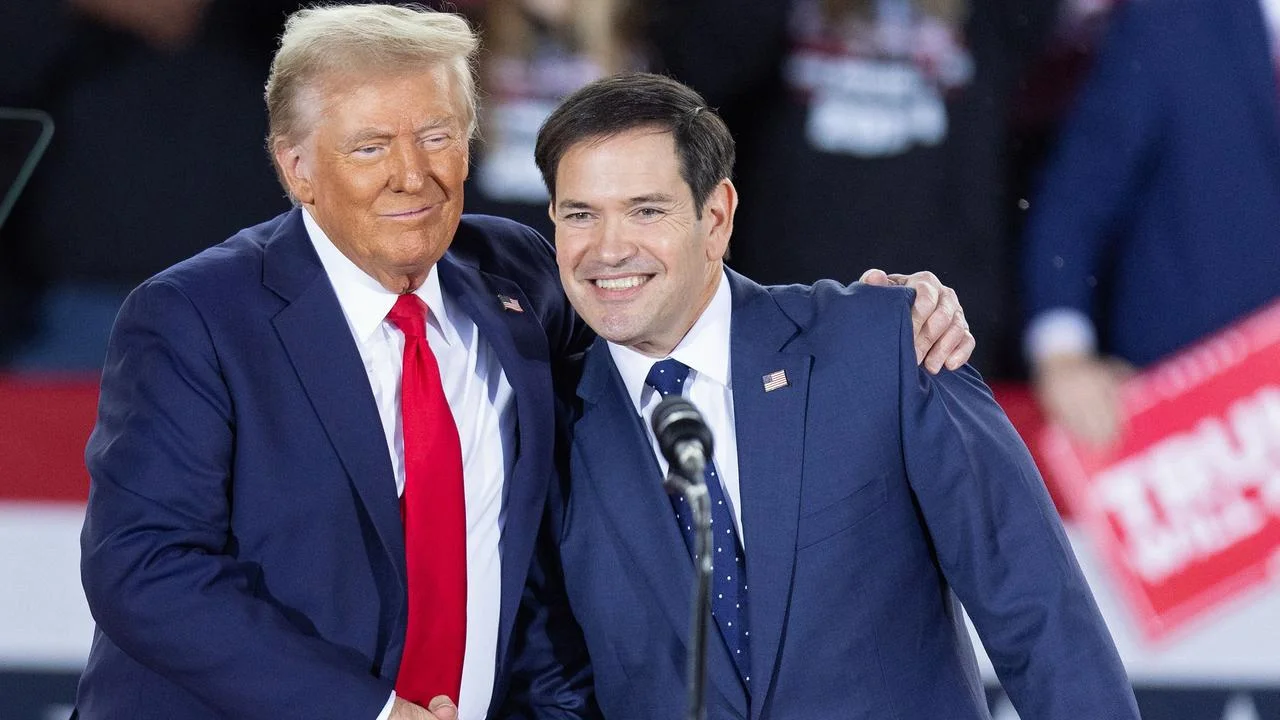President-elect Donald Trump unveiled several key appointees for his incoming administration, with Senator Marco Rubio expected to be named Secretary of State. Rubio, alongside Congressman Michael Waltz—who is anticipated to assume the role of National Security Advisor—are both known for their assertive stances on China, viewing the nation as a substantial challenge to U.S. economic and military strength.
Trump has promised an “America First” foreign policy, emphasizing a commitment to end the wars in Ukraine and the Middle East while avoiding new U.S. military conflicts. At 78, Trump has made clear that his return to office will bring radical changes to federal operations, signaling a potentially transformative second term.
Among Trump’s recent announcements, former Immigration and Customs Enforcement (ICE) director Tom Homan was appointed as the country’s “border czar.” Tasked with fulfilling Trump’s long-standing pledge to enforce mass deportations of undocumented migrants, Homan will play a central role in the administration’s immigration strategy. Meanwhile, Trump’s former immigration advisor Stephen Miller is expected to serve as deputy chief of staff, a role that will see him tackle a broad portfolio, including immigration policy.
In another key appointment, Congresswoman Elise Stefanik from New York has been nominated as U.N. ambassador. Known for her strong support of Israel, Stefanik’s appointment underscores Trump’s foreign policy priorities. Lee Zeldin, a loyal early ally of Trump, has been proposed as the new head of the Environmental Protection Agency (EPA). Zeldin’s mandate will include eliminating what the administration views as excessive environmental regulations, aiming to ease restrictions on industries affected by climate and pollution rules.
Sidestepping Senate Confirmation
Several of Trump’s nominees, including Rubio, Stefanik, and Zeldin, would traditionally require Senate approval. However, Trump’s team aims to bypass Senate oversight through recess appointments, allowing him to fill these roles while the Senate is in recess. Trump has framed this strategy as a loyalty test, calling on Republican senators to support his ability to make appointments without Senate interference.
Known for expecting unwavering loyalty from his administration, Trump has selected individuals who have consistently supported him, including those who backed his claims of election fraud following his 2020 defeat to President Joe Biden. The potential appointment of Rubio, in particular, marks a surprising reconciliation; during the 2016 Republican primary, Rubio labeled Trump a “con artist” and criticized his character.
Now, Rubio is one of Trump’s most vocal foreign policy allies. As a senator, Rubio has built a reputation for his staunch opposition to Cuba’s government and its allies in Latin America, particularly Venezuela. Additionally, he has led efforts to curtail Chinese influence in the U.S. and impose sanctions over human rights violations. Rubio’s hardline stance on China aligns closely with Trump’s policy views, particularly regarding economic and national security threats.
When asked about the rumored appointments of Rubio and Waltz, China’s Foreign Ministry declined to comment on the specifics, with spokesperson Lin Jian reiterating that China’s stance on U.S. relations remains “consistent and clear.”
Strengthening Immigration Enforcement and Deregulation
As Trump’s new “border czar,” Tom Homan will oversee policies aimed at controlling immigration and enforcing Trump’s promise of a large-scale deportation operation. Trump praised Homan on Truth Social, describing him as “the best” at policing borders. Homan’s role will focus on the deportation of undocumented immigrants, marking a sharp contrast to the immigration policies under the Biden administration.
Trump’s proposed environmental policy signals a strong push for deregulation, as seen in Zeldin’s selection as head of the EPA. Trump emphasized that Zeldin’s goal will be to eliminate what he considers unnecessary environmental restrictions, focusing instead on American energy independence and job creation in industries like manufacturing and technology.
With the Republicans projected to hold a majority in the Senate and making gains in the House of Representatives, Trump appears to be in a strong position to advance his ambitious agenda. These strategic nominations offer insight into the priorities of the upcoming administration, from stringent immigration policies to a rollback of climate regulations—all designed to realign the federal government with Trump’s vision for “America First.”




